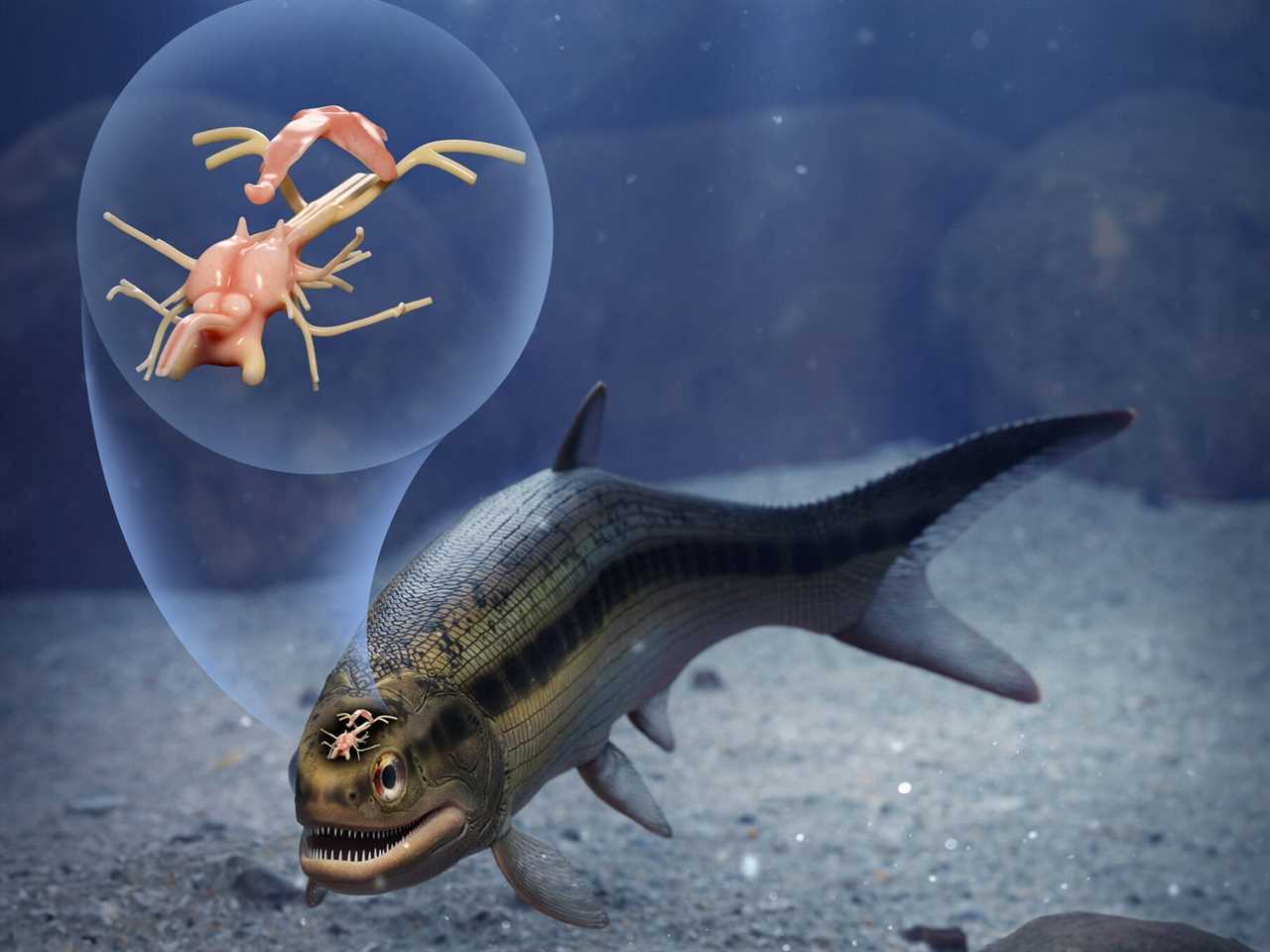Jeremy Marble/University of Michigan News
- Scientists discovered the fossilized brain of a vertebrate in a 319-million-year-old fossil.
- The rare finding offers new insights into the evolution of extinct bony fish related to the salmon.
- Researchers used imaging technology to peer into the skull of the fossil.
A 319-million-year-old fossilized fish, which revealed the "oldest example of a well-preserved vertebrate brain," offers new insights into the evolution of early bony fish, researchers found in a new study published in Nature on Wednesday.
The ancient fish,distantly related to the salmon and the goldfish, was discovered in a coal mine in England more than a century ago and was only re-examined recently.
A scan of a skull of the fish, called Coccocephalus wildi (C. wildi), "opens a window into the neural anatomy and early evolution of the major group of fishes alive today," according to authors of the study from the University of Michigan and the University of Birmingham in England.
While the small fossil fish may appear "superficially unimpressive," it shows that "much of what we thought about brain evolution from living species alone will need reworking," Rodrigo Figueroa, one of the lead authors of the study, said.

Márcio L. Castro/University of Michigan News
Scientists rarely discover fossilized soft tissue — as opposed to bones, shells, or teeth — which is why this "exceptionally" well-preserved brain of the vertebrate animal offers a brand new perspective into other ray-finned fish that are still swimming today.
The finding suggests a more complex brain evolution pattern, allowing researchers to define better "how and when present-day bony fishes evolved."
The fossil is one of a kind, so the scientists used "non-destructive" imaging technology to "peer inside the skull of the ray-finned fish," that likely ate crustaceans, aquatic insects and cephalopods.
The image from the scan of the C. wildi first appeared as an "unidentified blob," and the researchers were stunned to discover that it was a preserved brain. "It was so unexpected that it took us a while to be certain that it actually was a brain," Sam Giles, a vertebrate paleontologist and senior research fellow at the University of Birmingham, told CNN.
Researchers believe the extinct ray-finned fish would have been about six to eight inches long, and its brain and associated nerves are roughly an inch long. When the fish died millions of years ago, the soft tissues were rapidly replaced with a dense mineral which allowed the brain to be preserved in a detailed third-dimensional structure, the study said.
The ancient fish is on loan to scientists from the Manchester Museum in England.
Read More
By: [email protected] (Isobel van Hagen)
Title: A 300 million-year-old fossilized fish has the world's 'oldest preserved vertebrate brain.' It offers new clues about evolutionary history, say scientists.
Sourced From: www.businessinsider.com/scientists-discover-300-million-year-old-fossil-brain-vertebrate-animal-2023-2
Published Date: Sat, 04 Feb 2023 12:16:19 +0000
.png)





